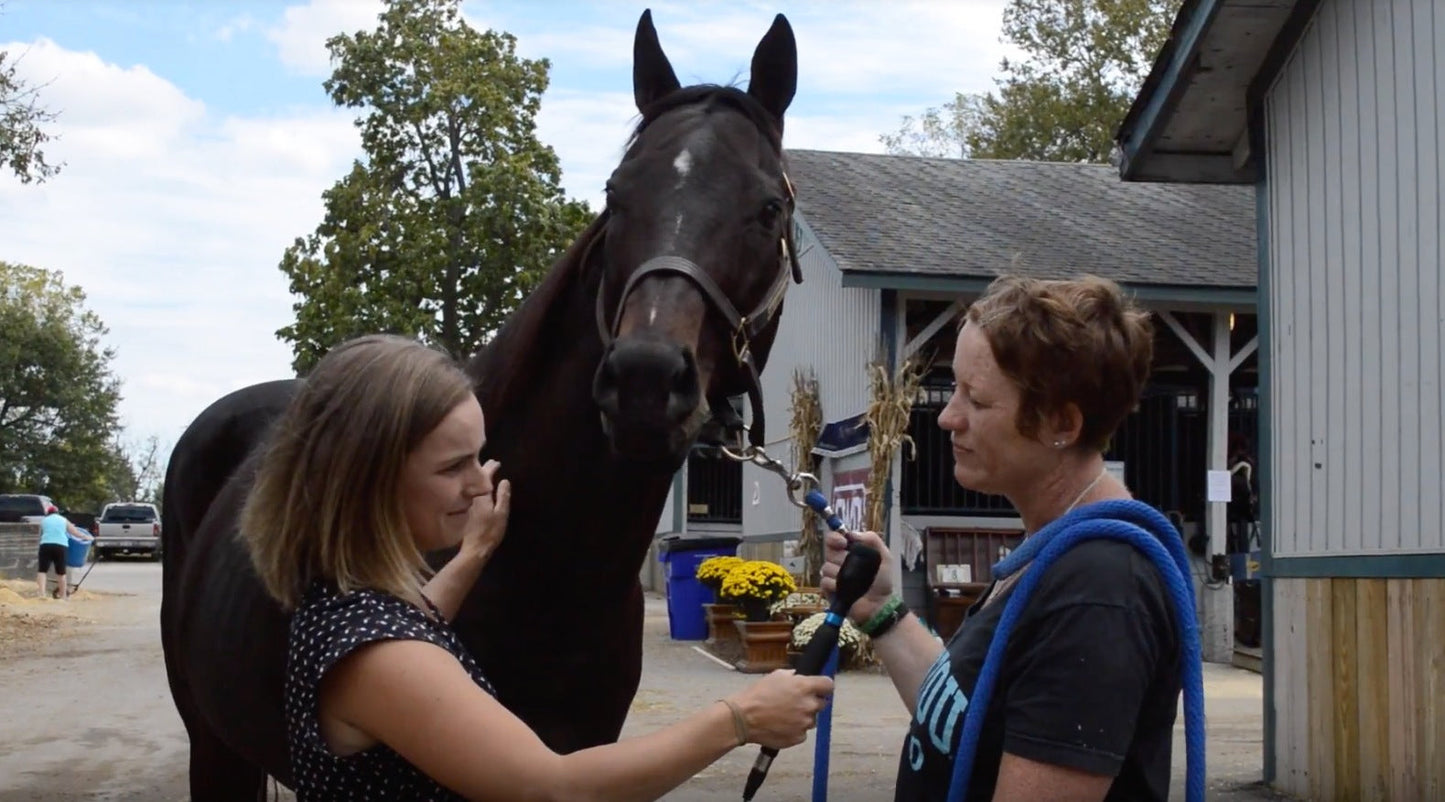
Racing fans will probably remember Nates Mineshaft, the small but mighty rocket who earned more than $850,000 in 39 career starts. These days Nate is an aspiring trail horse in the familiar hands of his longtime vet, Dr. Shannon Reed, who recently competed together at the Retired Racehorse Project's Thoroughbred Makeover in Lexington.
OTTB Pro Tips
Dr. Reed has been researching Off the Track Thoroughbred Horse owners on their first year of ownership and is in the process of submitting a paper on her findings.
Q: What are the major health issues you encountered rehabbing a TB or the issues you know are likely to be most common with a horse that has raced?
Reed: I am working on submitting a paper summarizing our findings in a research project where we questioned 1,300 OTTB owners on their first year of ownership of their Thoroughbred off the track. With this and my clinical experience I would say:
1. Gastric ulcers. I would recommend that all horses off the track are either automatically treated for ulcers with the help of a veterinarian or scoped to determine if they have ulcers.
2. Body soreness from racing
3. Foot conformation and quality
4. Fetlock issues
5. Tendon and ligament strain/tears
6. Osteoarthritis from strain on joints
7. Bone fragments or fractures
Q: As a vet, is there any advice you have for someone looking to get a horse off the track?
Reed: Have a pre-purchase done at the track if possible. Have that vet call your vet and tell them what they think. Especially if you are new to OTTBs. Pretty quickly, have the new horse seen by your vet and talk about a down time plan for that horse, ulcers and a diet plan going forward.
You should make a shoeing strategy.
While there are some Thoroughbreds out there paired with people experienced enough to immediately start a horse in riding right off the track, the bulk of horses will need some down time to adjust, release their muscles and their brain, and learn to be a horse.
Take this time to work on ground work and execute the plan you made with your veterinarian. I would even go so far as to say most people should budget money into their purchase for the vet visit at the track for pre-purchase, the vet visit at arrival home, and treatment for ulcers. One way to avoid this it consider adopting from an agency that has taken the time to do this already; it will actually save money in the end. Don't be afraid of horses that have run many times! Read their Equibase records and see if there were long gaps in racing or races where they did not finish. These are things to question the trainer about.
Q&A by Betty Weibel
